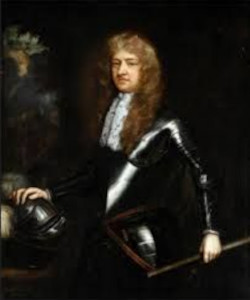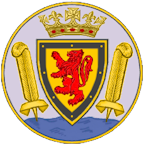Richard Buller

A direct descendant of the royal lines of England, France, Spain, and Portugal, and related to virtually all the royal families of Europe, Richard Buller was born in 1578, at Shillingham, the first son of Sir Francis Buller and his wife Thomasine (née Williams).
In 1597 Buller was admitted to the Middle Temple, and bound with his cousin Thomas Williams. While not known to have become a barrister, he subsequently held a legal position in Cornwall, and retained chambers at the Middle Temple as late as 1627. Buller's connection with the Inn broadened his ties with the puritan-minded gentry of Devon and eastern Cornwall. These included Richard Carew, also admitted in 1597, the diarist Walter Yonge, bound with Buller in 1600, and the future Presbyterian leader John Maynard.
In 1601 Buller married Alice Hayward, the daughter of Sir Rowland Hayward, Lord Mayor of London. The couple were to become the parents of six sons and six daughters: Katherine, Francis, Julian, George, Richard, John, Anthony, Alice, Samuel, Mary, Maria, and Thomasine. (Some sources report 7 sons and 5 daughters, having presumably mistaken his daughter Julian for a boy!)
Knighted on the 13th of June 1608, Buller began his long career in public office with a brief stint (1610-11) as a tax collector for Cornwall before his appointment as under-sheriff of Cornwall for the year 1611-12. He became a Justice of the Peace in 1614, and in 1616 royal assent was given to his nomination as High Sheriff of Cornwall, but he did not fill this role until many years later. Having inherited his patrimony in 1615, thereby becoming a prominent local figure and one of the richest men in south-east Cornwall, Buller became under-steward of Trematon Castle in 1619, performing this duty for 11 years.
By 1620 Buller was also recorder of Saltash. (Under its charter of incorporation, the borough of Saltash was governed by a mayor, recorder and 10 aldermen.) Like most of the Cornish boroughs enfranchised or re-enfranchised during the Tudor period, Saltash was a 'rotten borough' which returned two Members of Parliament to the House of Commons. As recorder, Buller dictated most of the parliamentary nominations for the next four general elections, securing positions for several relatives: Sir Thomas Smythe, his uncle by marriage, was elected a Member of Parliament for Saltash in 1621; his son Francis Buller was elected in 1624 and 1625; Sir John Hayward, elected in 1626, was his brother-in-law.
Buller himself was elected Member of Parliament for St Germans in 1621, with the backing of his Kekewich cousins. Not known to have stood for re-election in 1624, he was subsequently MP for Saltash from 1625 to 1629 when King Charles I decided to rule without parliament. During these parliaments Buller was three times appointed to the committee for privileges, and served on at least 15 other committees, gaining in the process a reputation as being a 'godly' Member. At some point in the mid-1620s he was appointed Steward of the Cornwall Stannary Court, and in 1636-37 he served as High Sheriff of Cornwall.
In April 1640 Buller was elected MP for Cornwall in the Short Parliament, and in November 1640 he was elected MP for Fowey in the Long Parliament. During this parliament Buller allied himself with West Country puritan leaders including Lord Robartes.
At the outbreak of the Civil War in August 1642, Buller emerged as a leader of the Parliamentarian forces in Cornwall alongside Lord Robartes and Sir Alexander Carew. Leaving London, he established his headquarters at Saltash and was attempting to raise troops for the Parliamentarians in late September when Sir Ralph Hopton, in command of a considerable body of Royalist horse, commenced serious military operations in Cornwall. For a brief interval both Saltash and Launceston remained in Parliamentarian hands, and Buller was at Launceston in early October when Sir Ralph captured it and then led his troops down the Tamar to seize Saltash. In both instances the Parliamentarians abandoned the town without resistance and retreated across the river to Plymouth, where Buller died, apparently unexpectedly, sometime in November.
On the 30th of November Sir William Courteney, the Royalist officer then in command of Saltash, informed Buller’s son, Colonel Francis Buller, that his father’s body could not be brought from Plymouth to Saltash for burial without express permission from Sir Ralph Hopton, which had not been gained. Sir Richard Buller's funeral and interment, therefore, took place at Plymouth's Church of St Andrew on the 1st of December 1642.
page updated 2025-03-21
